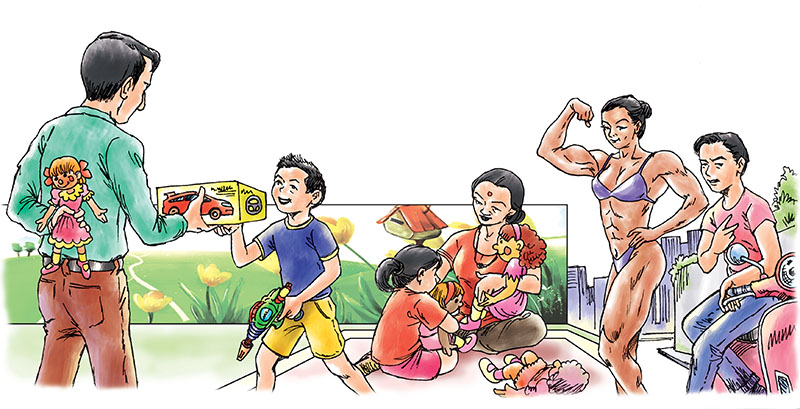Discrimination rife in Nepali society: AI
Kathmandu, February 24
Discrimination persisted on the bases of gender, caste, class, ethnic origin, sexual orientation, gender identity and religion in Nepal in 2017/18, says a report of Amnesty International.
According to annual report recently published by the AI, constitutional amendments did not fully guarantee equal rights to citizenship for women, nor provide protection from discrimination to marginalised communities including Dalits and other caste-based and ethnic minorities, and lesbian, gay, bisexual, transgender and intersex people.
“The provisions for punishment and the statutory limitations relating to rape in the new Criminal Code were still far short of international law and standards. Gender-based discrimination continued to undermine women’s and girls’ ability to control their sexuality and make informed choices related to reproduction; to challenge early and forced marriages; and enjoy adequate antenatal and maternal health care,” it said.
The report warned that impunity remained entrenched and political parties resisted amending transitional justice laws in what was widely perceived as a prioritisation of reconciliation and monetary compensation over truth, justice and other reparations, including guarantees of non-repetition. No effective investigations had taken place into the hundreds of killings of demonstrators by security forces since 1990 in various parts of the country, including the Tarai.
“The criminal investigation system remained archaic and draconian. Torture and other ill-treatment was widespread in pre-trial detention to extract ‘confessions’. The new Criminal Code passed by the Parliament in August contained provisions criminalising torture and other ill-treatment, with a maximum of five years’ imprisonment. A separate anti-torture bill, which remained pending in the Parliament, fell far short of international legal requirements,” the report read.
Amnesty International also said that the government did not amend the Investigation of the Disappeared Persons, Truth and Reconciliation Commission Act 2014 as ordered by the Supreme Court in 2014 and 2015.
By the end of the year, two bodies – the Truth and Reconciliation Commission and the Commission of Investigation on Enforced Disappeared Persons – had respectively collected over 60,000 and 3,000 complaints of human rights violations, such as murder, torture and enforced disappearances, among others,committed by state security forces and Maoists during a decade long conflict from 1996 to 2006.






